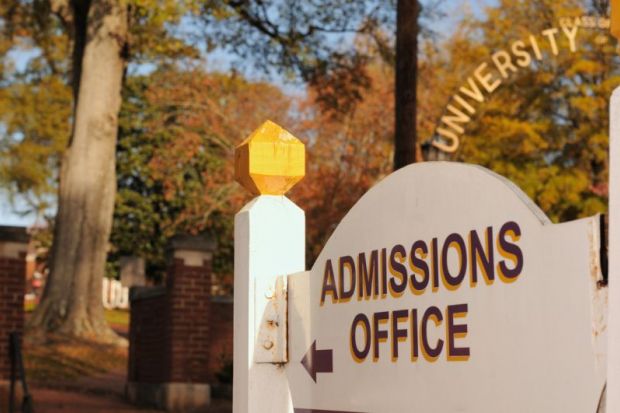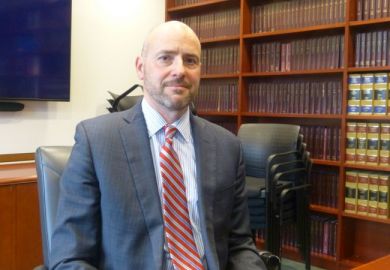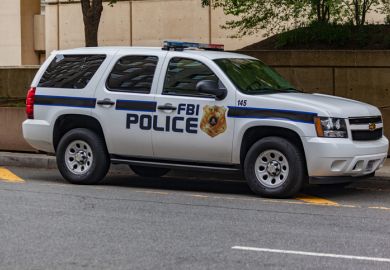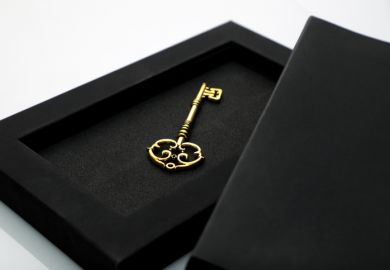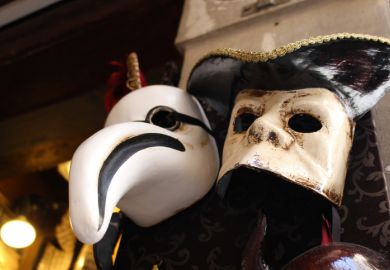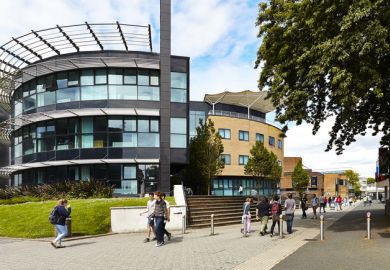With most of the defendants in the college admissions scandal having pleaded guilty, and many having been sentenced to prison, a celebrity-led group is claiming that new evidence shows prosecutors tried to fabricate evidence of bribery.
The evidence, defence attorneys wrote in a court filing, consists of written records from the scandal’s “mastermind” William Singer accusing FBI agents of asking him to help ensnare parents by falsely telling them that he always regarded their payments as bribes rather than donations.
The records of Mr Singer’s notes to himself, describing the alleged FBI request, were improperly withheld from the defendants and only recently discovered by them, their attorneys wrote in a court filing.
Discovery of the notes “is devastating to the government’s case”, the attorneys, representing the celebrity defendant couple Lori Loughlin and Mossimo Giannulli, told the court.
The legal value of the revelation might not be known for months, as trial in the case doesn’t begin until October. It is, however, another development that highlights the vagueness of what elite US universities do and do not consider acceptable in the realm of admissions strategies.
Other documents recently disclosed in the case show that Ms Loughlin and Mr Giannulli received solicitations from the University of Southern California − aimed at winning their donations to USC and providing them special consideration of their daughter’s application − at the same time the couple was allegedly trying to accomplish the same basic result by illegally funnelling $500,000 (£400,000) through Mr Singer.
The top prosecutor in the case, Andrew Lelling, the US attorney for Massachusetts, acknowledged in an interview with Times Higher Education that while he is charged with enforcing the law, US academic institutions may need to be clearer on exactly what behaviour they are aiming to prevent.
The case became public last March when Mr Lelling outlined charges against several dozen people who allegedly helped their children win admissions by falsely portraying them as sports recruits.
Ms Loughlin, an actress, and Mr Giannulli, a fashion designer, are among a group of 15 parents still fighting the charges brought by Mr Lelling. The 15 defendants have been put into two groups, with one set for trial on 5 October and the other scheduled for 11 January 2021.
Altogether, prosecutors have charged 53 people and won 31 guilty pleas. Fifteen parents and two college sports coaches have been sentenced. The harshest penalty so far was a nine-month term for one of the parents, Douglas Hodge, the former CEO of Pacific Investment Management Company.
Mr Singer ran a Los Angeles-area company that provided such wealthy customers with advice on navigating college admissions processes. Prosecutors quietly contacted Mr Singer after they learned about the alleged bribery operation, and he agreed to help build the government’s case against other parents by recording their calls.
But in the notes newly discovered by the defence attorneys, Mr Singer described himself as frustrated by pressure from federal investigators to, when talking to the parents, stop describing their payments to him as donations that would be relayed to the institutions.
Among the major questions to be considered at trial is whether the government has clear evidence of what the parents believed, and the degree to which the parents did or didn’t knowingly help deceive the institutions about the athletic abilities of their children.
Prosecutors have updated their own court filings in recent months to allege additional details of how Ms Loughlin and Mr Giannulli worked with Mr Singer to create false athletic profiles for their two daughters to win admission to USC.
Register to continue
Why register?
- Registration is free and only takes a moment
- Once registered, you can read 3 articles a month
- Sign up for our newsletter
Subscribe
Or subscribe for unlimited access to:
- Unlimited access to news, views, insights & reviews
- Digital editions
- Digital access to THE’s university and college rankings analysis
Already registered or a current subscriber?
